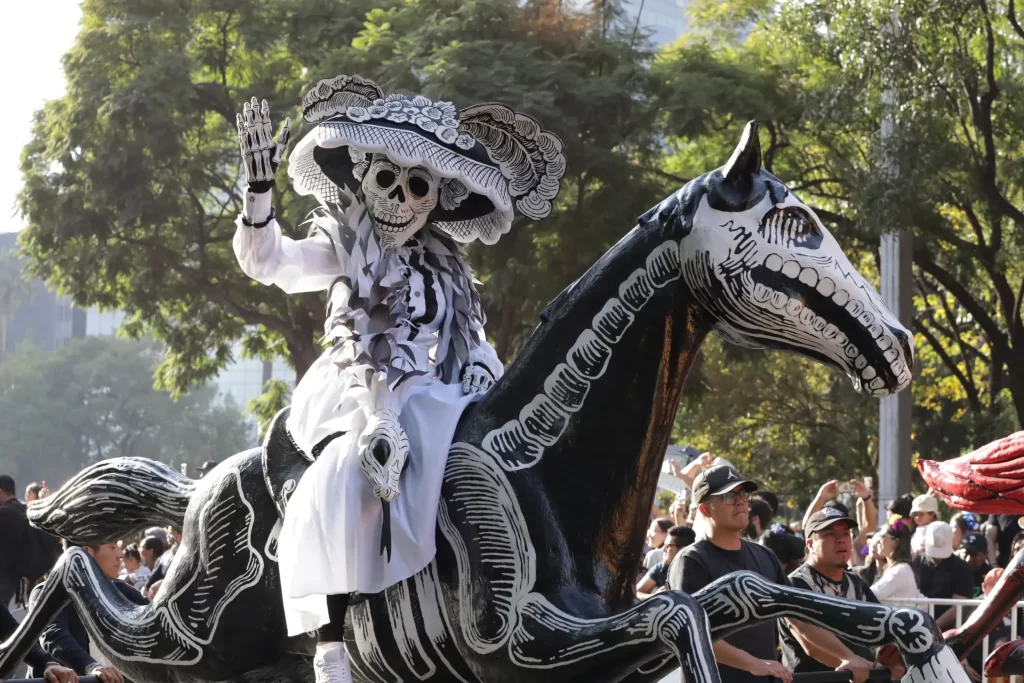
Thousands of people turned out Saturday to watch Mexico City’s Day of the Dead parade as costumed dancers, drummers and floats took a festive turn down the Paseo de la Reforma boulevard all the way to the historic colonial main square.
There were marching bands disguised as skeletons and dancers with skull face paint performing in Indigenous costumes. The smell of traditional resinous copal incense hung heavy over the parade.
A skeleton drum group pounded out a samba-style beat, while blocks away dancers swirled long skirts painted to resemble the wings of monarch butterflies, which traditionally return to spend the winter in Mexico around the time of the Day of the Dead.
In a nod to social change, there was a contingent of drag performers costumed as “Catrinas,” skeletal dames dressed in the height of 1870s fashion.
The holiday begins Oct. 31, remembering those who died in accidents. It continues Nov. 1 to recall those who died in childhood and then on Nov. 2 celebrates those who died as adults.
The city also marks the Day of the Dead with a huge altar and holds a procession of colorful, fantastical sculptures known as “alebrijes.”
Such parades were not part of traditional Day of the Dead festivities in most of Mexico, though in the southern state of Oaxaca “muerteadas” celebrations include a similar festive atmosphere.
The Hollywood-style Day of the Dead parade was adopted in 2016 by Mexico City to mimic a parade invented for the script of the 2015 James Bond movie “Spectre.” In the film, whose opening scenes were shot in Mexico City, Bond chases a villain through crowds of revelers in a parade of people in skeleton outfits and floats.
Once Hollywood dreamed up the spectacle to open the film, and after millions had seen the movie, Mexico dreamed up its own celebration to match it.
Mexico City resident Rocío Morán turned out to see the parade in skull makeup. Morán, who runs a company that measures ratings, wasn’t bothered by the mixing of the old and the new.
“It became fashionable with the James Bond movie, and I think it’s good because it brings economic activity to the city,” Morán said. “I like it. I like progress, I like that tourists are coming to see this.”
“I think that Day of the Dead has always existed,” Morán added. “Now they’re using marketing, they’re visualizing it, they’re making it so the whole world can see it.”




